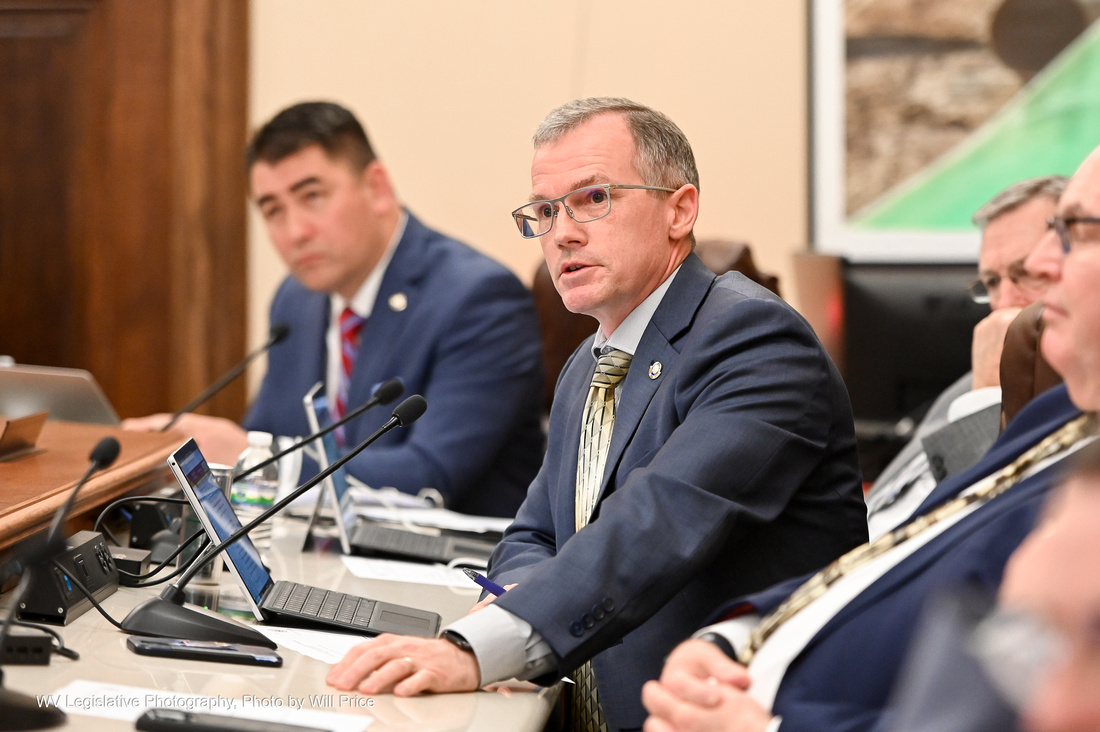The Senate Health and Human Resources Committee approved a bill Thursday to ban gender-affirming health care for transgender minors.
The House passed House Bill 2007 last month. During a public hearing on the bill in the House chamber last month, all but two of the dozens of speakers opposed it.
HB 2007 would prohibit anyone under 18 from receiving puberty blockers or hormone therapy. It would also ban gender-confirmation surgery for minors, though there is no record of that taking place in West Virginia.
The Senate Health Committee heard from an expert witness, Kacie Kidd, a doctor at West Virginia University who provides gender-affirming care.
“I, to be very honest with you, am very concerned that the withdrawal of this care will result in very profound harm to the young people of our state,” said Kidd, medical director of WVU Medicine’s Children’s Gender and Sexual Development Clinic.
After Kidd’s testimony, the committee approved it and sent it to the Senate Judiciary Committee.
The committee vote wasn’t entirely along party lines. Sen. Tom Takubo, R-Kanawha, one of two physicians on the panel, spoke out against the bill and offered an amendment to ensure that any minor who is currently receiving treatment could continue to do so.
“I cannot, in good conscience, sanction a bill when we know the facts are that this therapy does improve the functionality of a child, it decreases suicide rates, it helps with their mental health,” he said.
Takubo’s amendment was defeated. Sen. Eric Tarr, R-Putnam, led the pushback.
“This is still a step where the state is saying it’s okay to go in and frankly, what I would consider, abuse of a child,” Tarr said. “It’s criminal.”
The committee’s chairman, Sen. Mike Maroney, R-Marshall, also a physician, supported Takubo’s amendment.
“This is legitimate, it’s just something that we don’t understand or don’t get. And that’s fine — I chose to stay quiet. But take the step to prohibit those already being treated, to deny them continued treatment? That’s not only uneducated, in my opinion,” he said, “that’s cruel.”
West Virginia is among two dozen states to attempt to restrict health care for transgender youth.
A similar bill in Kentucky was approved by that state’s House Education Committee and full House of Representatives on Thursday.
Gov. Bill Lee of Tennessee signed a similar bill into law on Thursday.
Leah Willingham of the Associated Press contributed to this story.
